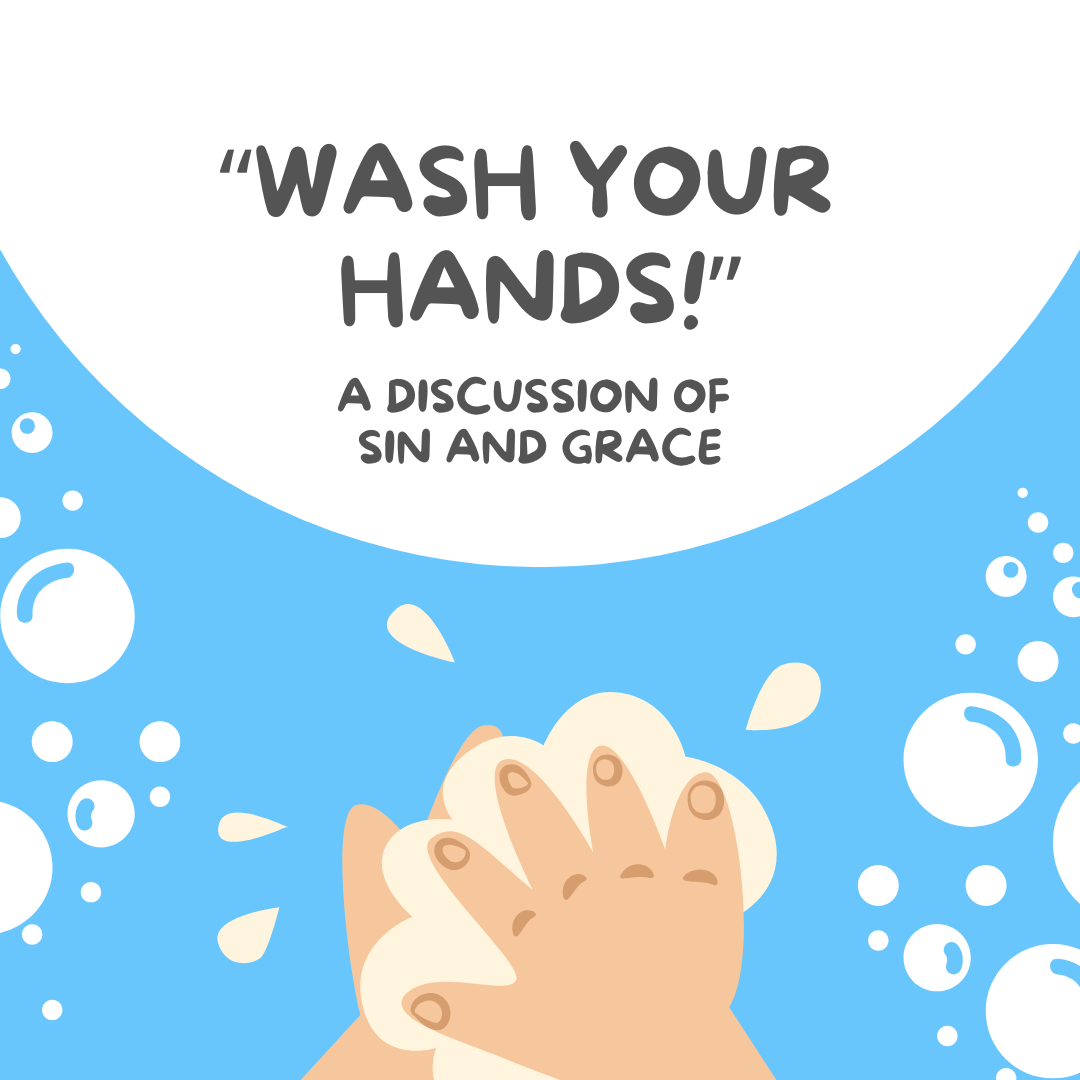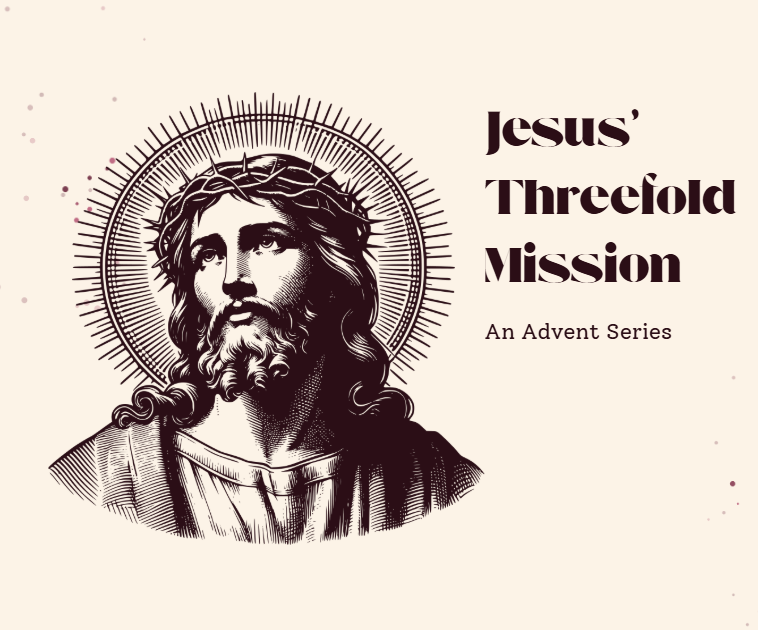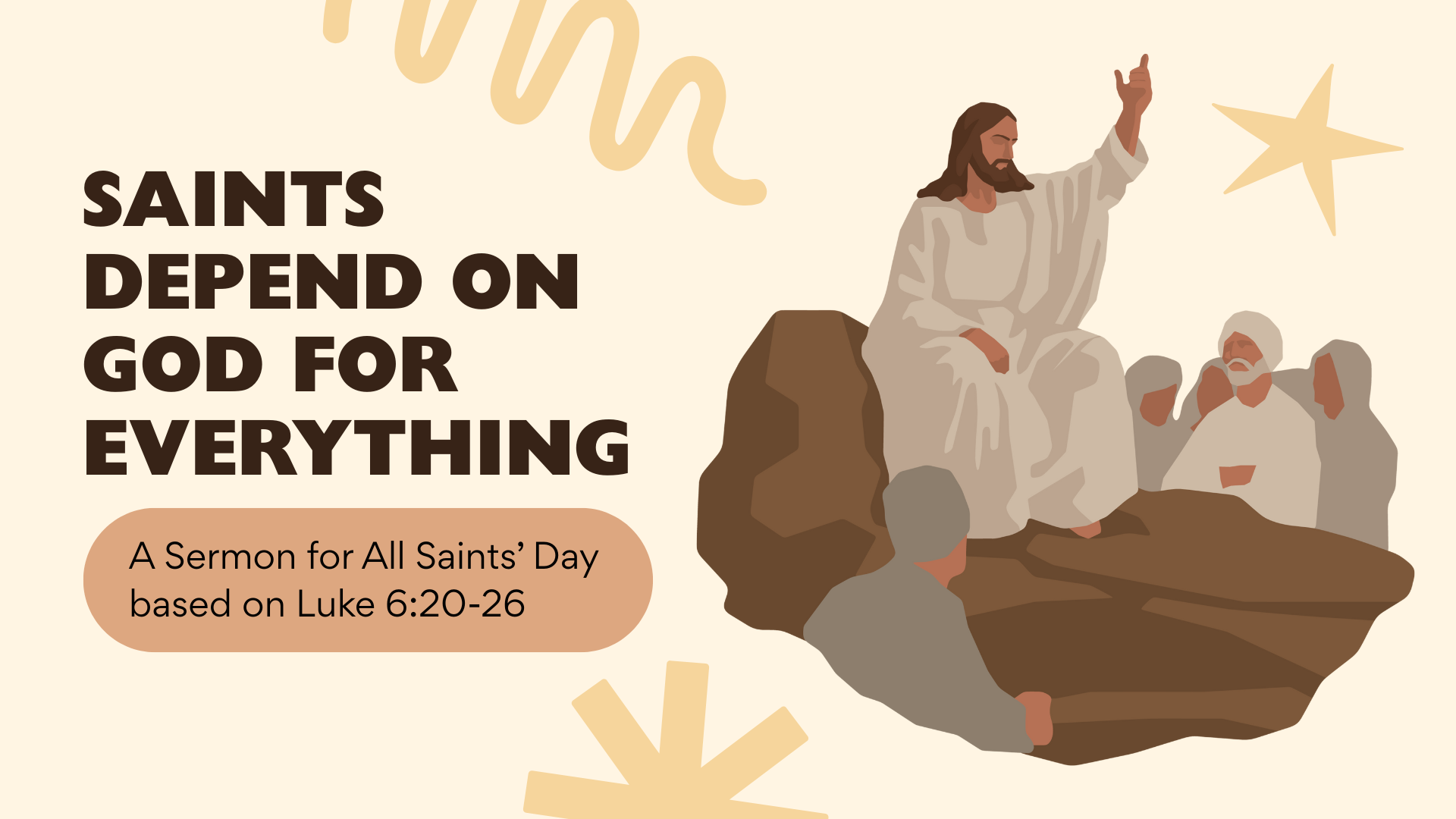"WASH YOUR HANDS!" A Discussion of Sin and Grace

This devotion accompanies themes that have been studied in the previous week’s Sunday morning Bible class. Over the next few weeks, join us at 9am on Sundays at Trinity for the following discussions!
If you want to get to heaven, you need to wash your hands. If you think that last sentence sounds too ridiculous to be believed, you might be surprised by Matthew chapter 15. In Matthew 15:1-3, a religious group called the Pharisees criticize Jesus’ disciples for eating without washing their hands. This is a good practice for sanitary reasons, but it was more than that to them. The Pharisees had attached ceremonial, religious, even moral significance to simple actions like scrubbing between your digits.
To be fair, the Pharisees would agree that the opening sentence is ridiculous. They would say, “Hey, we’re not saying that washing your hands gets you into heaven! We’re just saying it’s really important for maintaining a morally and spiritually pure life before God.” Which raises the question: what’s the difference?
Jesus answers the Pharisees’ criticism with a deeper criticism. It’s not just ridiculous to think that keeping your hands clean is the same as keeping your soul clean. It’s completely backwards. Jesus reveals the ugly truth that “the things that come out of a person’s mouth come from the heart, and these defile them. For out of the heart come evil thoughts—murder, adultery, sexual immorality, theft, false testimony, slander. These are what defile a person; but eating with unwashed hands does not defile them” (Matthew 15:18-20). The problem of moral impurity cannot be solved with some hand soap, because it goes much deeper.
As the Word of God incarnate (John 1:1-14) Jesus echoed with authority the Bible’s teachings about sin. Passages like Psalm 51:3-6 reveal that from the first second we exist, we have this inward problem of impurity. Passages like Isaiah 64:5-9 show that this sin creates a dreadful separation between us and the God who created us and expects righteousness out of us. We might think that the real “sinners” of the world are those that do the big bad stuff, but Jesus revealed in Matthew 15:18-20 that every sin begins at the same place: with a corrupt heart. Because of the corruption of sin, we fall far short of the glory of God (Romans 3:23). We don’t do the things we know we should (sometimes referred to as “sins of omission). We find ourselves doing the things we know we shouldn’t do (“sins of commission”) (James 4:17, James 2:10, Romans 7:15). Some people might appear to be more morally upright than others. Some may be more helpful to society while others are dangerous and commit horrible acts against other human beings, but as long as we’re talking about the righteous moral standard God requires, no one has met it (see Isaiah 64:6 again). Clearly, if it’s our task to live as perfectly moral people, we are unfit to the task.
Therefore, if we have any hope of a salvation, we need something much more powerful than handwashing. If we are going to find any possibility of release from the guilt of our sin, it’s going to have to come from somewhere other than us.
That’s the irony of Matthew chapter 15. The Pharisees badgered the disciples for not washing their hands. They were oversimplifying the solution to sin. Anyone who really faces the guilt of what they have done knows that resolving to be better on one’s own is hardly any comfort. The Pharisees were so committed to their program of self-righteousness that they missed who was standing right in front of them. It was Jesus, the Word incarnate, the Son of God in the flesh who rebuked them. Why was Jesus standing there, in the flesh, to begin with? Because as John 3:16 says, Jesus was sent to save us. Why? “Because God so loved the world.” Titus 3:3-7 reaffirms that, yes, we were in a very bad situation beforehand, but God saved us through the justifying work of Jesus Christ. Why? Because of his kindness and love. 2 Corinthians 5:16-21 states that God’s solution for our sin was not to just clean up the surface, but to take the corruption and dirt in our hearts and crucify it on the cross of Christ, while at the same time awarding us with the righteous perfection of that same Savior. God’s expectation of perfect moral purity? It’s done, completed. Not through you, but through Christ on your behalf. The punishment your sin deserves? It has been served by Christ already (Romans 8:1). Our Designer’s purpose for us to live as his righteously perfect people? It is accomplished by Christ. All because of God’s mercy; his love; his kindness; his decision, in alignment with his character, to unconditionally love sinners and desire to save them. That’s what we call “grace.”
But what does this mean for our lives now? Does it mean that we can do whatever we want, now that we’re forgiven? How do we calm our troubled consciences that continue to pester us about past wrongs? Do I get to take any credit for the good things I’m doing for the Lord?
For questions like these, please read passages like the ones mentioned in the study above. Also, consider joining us for Bible class on Sunday, January 19, 2025 at 9am for a discussion of how what we believe about salvation means for how we should act in our lives.
May the God of grace fill you with the assurance that your sins are indeed totally forgiven in Christ!
Pastor Mike Cherney







